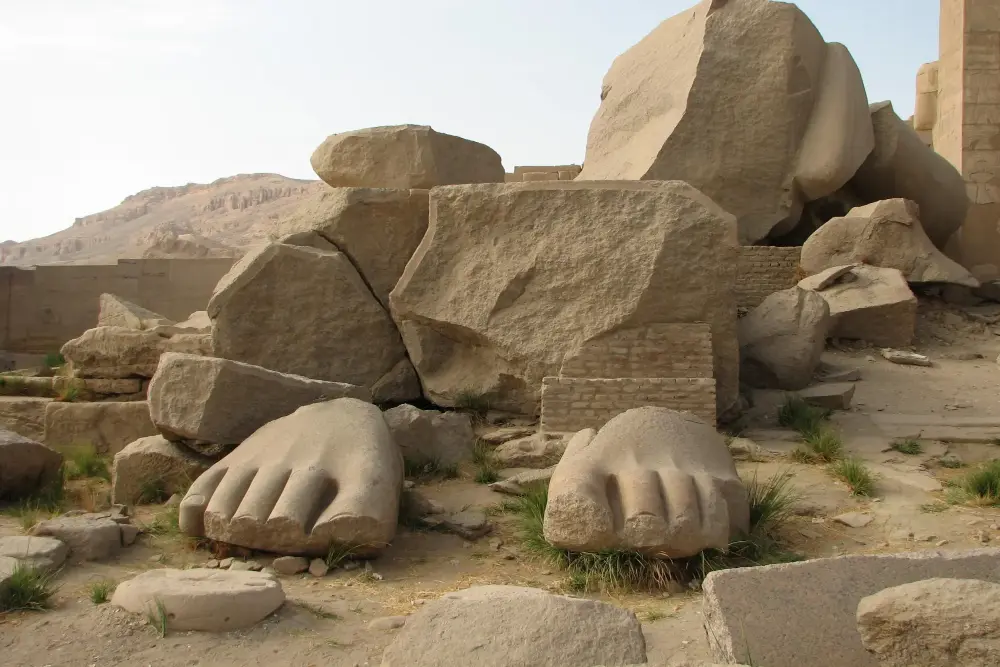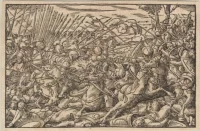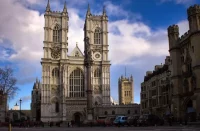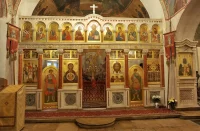
“You are dust, and to dust you shall return…” (Gen. 3:18)
Human beings have a fundamental bond with the planet on which we live – we are made of its stuff. We are not made of Mars dirt, or Moon dust, Jupiter gas, or Saturn rings. We are made of earth dust – we always have been and always will be. This is not accidental nor incidental – it is foundational. We are earth dust that reasons and speaks. Not only is this true for this earthly life (earthly!), it is, according to the Scriptures, true of our eternal existence with Christ. The earth dust that was the earthly flesh of Christ is now (somehow) the transfigured, resurrected earth dust that is eternally seated at the right hand of the Father.
I often think that we pay too little attention to our dust-bodies. Our science fictions seems to imagine us darting around to planets all over the galaxy, moving our brains from one vessel to another, or simply parking our sentience in some updated version of a laptop computer (or my phone). We call our latest ditherings with electricity and silicon “artificial intelligence,” which represents a serious failure to understand or respect the wonder of our own minds.
We live in an utterly unique biome. Our world is more than dirt. It is also wonderfully teeming with life – viruses, bacteria, fungi, animals and plants of innumerable variety. And many of these things live inside us and make our life possible. We have more bacteria in our body than we do cells. Some of those bacteria play a role in generating things such as seratonin and other essential chemicals. We are fearfully and wonderfully made, and our life is utterly enmeshed with the life of other planetary creatures. We eat them (plants, animals), we breathe them, they participate in our thoughts (see the seratonin reference). More than dust, we are Earth that reasons and speaks.
Someone asked me recently, “Will there be bacteria in heaven?” It made me suspect that our vision is often less than cosmic – that is – it’s too small. St. Paul writes:
“For the creation eagerly waits for the revelation of the sons of God. For the creation was subjected to futility—not willingly but because of God who subjected it—in hopethat the creation itself will also be set free from the bondage of decay into the glorious freedom of God’s children. For we know that the whole creation groans and suffers together until now. Not only this, but we ourselves also, who have the firstfruits of the Spirit, groan inwardly as we eagerly await our adoption, the redemption of our bodies.” (Rom. 8:19–23)
Christ came not just to save sinners, but to save the whole of creation. When we speak of a “new heaven and a new earth” (Rev. 21:1), we should think, “the whole of creation.” We’re not just in this for ourselves.
C.S. Lewis once observed:
“That is why I often find myself at such cross-purposes with the modern world: I have been a converted Pagan living among apostate Puritans.”
The “apostate Puritans” he had in mind are the citizens of modernity who have so divorced themselves from creation and one another that they wonder if creation would have any place in heaven. The Puritans who gave birth to such a mindset were already jettisoning sacraments and any number of other material aspects of God’s good creation from their own religious imagination. Orthodox Christians are not anti-materialist. Indeed, we may be among the few true materialists in the modern world.
Christ’s ministry among us was thoroughly engaged with the material world. He healed with spit and mud, and bathing in water. His feeding of the 5,000 was not anti-material nor ignorant of their hunger. It wonderfully expanded the reality of five loaves and two fish such that created limits shared in the abundance of heaven itself.
Lewis’ “Pagan” reference was an acknowledgement of his imagination filled with stories and myths of gods that inhabited trees and rivers, springs and seasons. Indeed, the Paganism he had in mind was deeply intertwined with all created things. The Christianity that came to his native islands (he was actually Northern Irish and later studied and lived in England) from the Apostolic times, was in no way scandalized by the religious place of nature in those cultures. One need only read St. Patrick’s Breastplate to hear how seamlessly Christianity gathered up nature as well:
…I arise today, through
The strength of heaven,
The light of the sun,
The radiance of the moon,
The splendor of fire,
The speed of lightning,
The swiftness of wind,
The depth of the sea,
The stability of the earth,
The firmness of rock.
I arise today, through
God’s strength to pilot me,
God’s might to uphold me…
I smile when I see books describing “Celtic spirituality,” knowing that it is nothing more than Orthodox Christianity as expressed among a particular people – nothing more, nothing less.
All of this, however, is difficult for modernity’s “Puritan” offspring. In their efforts to purge the world of every vestige of Catholicism, they helped initiate a secularized Christianity, devoid of mystery and sacrament (except as a mental exercise). The charge of “superstition” helped sweep away the wonder of Christianity’s original vision of creation. Of course, modernity has replaced all of this today with the “settled science” of climatology as electric cars and the like promise the world a new salvation.
My first book, Everywhere Present, sought to reintroduce readers to the “one-storey universe,” a world in which even the bacteria have a divine purpose and destiny. It was a delightful proposition put to me by my editor in Russia, when the book was published in translation, that we add a chapter with a Russian translation of St. Patrick’s breastplate. It now feels like a missing chapter in the English version. There is, I think, a missing chapter in much of our Christian faith in our present time. We have lost so much.
Have you ever pondered the bacteria that inhabited the gut of the God/Man? I confess that haven’t either. We creatures of dust, friends and fellows of flora and fauna, need to reclaim the wholeness of our faith. Modern Puritans all the world over are hungry for the faith they once condemned. They have set various forms of madness in its place. Sanity is rare – but it only comes with wholeness.
A version of the Jesus Prayer that I learned in the Monastery of St. John the Baptist in Essex goes:
“Lord Jesus Christ, Son of God, have mercy on us and on Thy whole world.”
It groans. Can you hear it?
Source: Glory To God For All Things














Comments